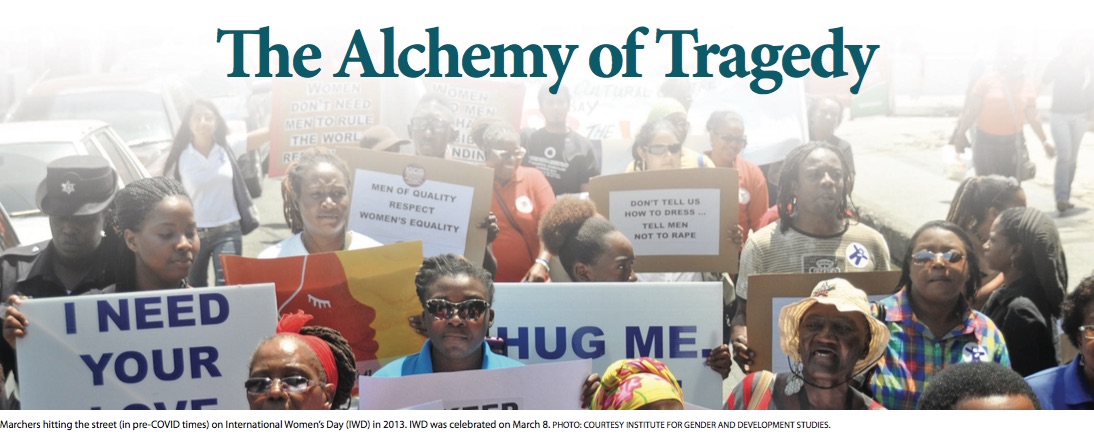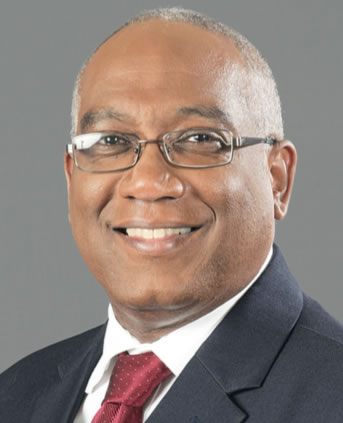
It’s been well over a month since the grim confirmation of the death of Andrea Bharatt and we are still grappling, as a people, with this tragedy. Ms Bharatt was one of our own, a young Trinbagonian woman, a graduate of UWI St Augustine, still at the beginning of young adulthood. The greatest tragedy of all is that she is one of many, women and girls forced to face exploitation, violence and ultimately, as in her case, even death.
In these times, in the aftermath of these senseless acts, we struggle to transmute our collective grief and anger into something positive and useful. In her International Women’s Day message, President of the Republic, Her Excellency Paula Mae Weekes, spoke of the national anguish in response to the ever present and haunting spectre of gender-based violence. As Her Excellency noted “Over the years, a number of heart-rending murders moved the nation and provoked social agitation.” I agree with Her Excellency. At The UWI St Augustine and across the other UWI Campuses at Mona and Cave Hill, the Institute of Gender and Development Studies (IGDS) has been at the forefront of advocacy against gender-based violence for many years, as have several other local civil society organisations. Sadly, the scourge of gender-based violence is not only found in our country.

In 1985, the Mighty Duke questioned “How many must more die?” While that song was penned to question, at that time, the atrocities associated with apartheid, the title also is apt for our conversation today, 36 years later. We can only hope that the atrocities associated with gender-based violence will serve as a tipping point for mass action. But for this to be the tipping point, we must all get the point.
For some years now, and certainly since I assumed as Campus Principal in 2016, I have posited that UWI should reassess its role and purpose in society. How can we be more efficient? How can The UWI have a greater impact? How can we contribute to building a better Caribbean society? The COVID-19 pandemic caused us to accelerate our institutional introspection. I am very proud of how we were able to work hand-in-hand with T&T and the region to navigate our way through the danger and disruption of the last year. We continue to work assiduously with our partners through COVID-19 and we are committed to finding solutions.
The stark reality is that now we have many more problems to face. How do we curb gender-based violence and achieve greater gender justice? How do we find effective and humane solutions for crime? How do we protect children from abuse and keep them on positive paths to adulthood? How do we confront the hidden evil of corruption in both public and private offices? What can we do about persistent social maladaptation like tribalism, racism and other forms of bigotry that weigh us down? These questions all point to the role and function of a myriad of institutions that support our society and which contribute to making citizens of Trinidad and Tobago, and of the world.
I believe universities generally and The UWI in particular, play an important role in confronting and correcting such social ills. We have come a long way from the earliest universities of Asia, Africa and Medieval Europe that blended spiritual learning with scientific inquiry. We have advanced from pure research, rich with philosophical discourse, to a greater emphasis on applied research, while developing our teaching effectiveness to meet the growing needs of a more demanding public. Today, we provide to the public our graduates, our research and policy ideas, and even our faculty and staff members through outreach activities.
In this issue of UWI TODAY we look specifically at the work of our Faculty of Social Sciences, which leads in many areas that can address social ills. We also introduce our readers to the Working Group on Crime, a multi-disciplinary team that focuses on what has become one of T&T’s most pervasive challenges. Of course, we highlight the work of IGDS, whose staff and students have been at the forefront of gender justice since the early 1990s, building on the efforts of Caribbean feminist scholarship and activism going back to the 1970s.
As we mourn the passing of too many victims of gender-based violence in our country, and recognise the larger systemic social and institutional failures that cost these women their lives, we will continue and intensify our labours in the public space, just as we did with the pandemic. Our university story is ever ongoing and ever evolving; the next chapter is one of partnership and collective effort with the wider society for positive change.
PROFESSOR BRIAN COPELAND
Campus Principal